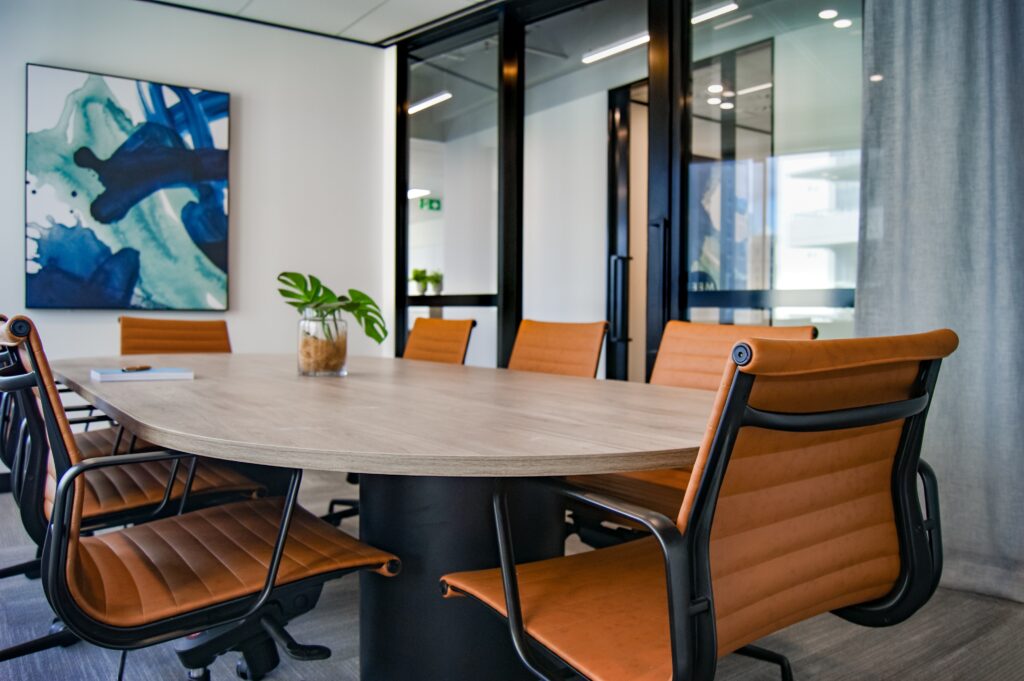How to Rent Commercial Office Space

Renting Commercial Office Space
Businesses come in all shapes and sizes.
Some are large international enterprises with a sprawling global clientele, and others are small or medium-sized, with only a few employees and a customer base much closer to home.
No matter the size of your company, there will come a point when it is necessary to expand or to relocate. This is true whether you are a small business interested in acquiring commercial space for the first time, or if you already occupy commercial real estate and plan on finding a new address once your current commercial lease expires.
If your company needs a new leased space, it is imperative that you have as much knowledge as possible before entering into the process. This way, you’ll get the most bang for your buck and avoid any potential pitfalls that may come up along the way.

Choosing Your Location
Every business is different, and as such, they each have to satisfy a unique set of needs in order to be successful. The same is true for commercial spaces.
In order to choose the best possible location for a price that makes the most sense for you as well as your customers and clients, you’ll first need to have a good understanding why you’re renting in the first place. To help you narrow down your property search, consider some of the following questions:
- What type of building will you require? Is this only for employees, or will customers do business here as well?
- What geographic area is best for your commercial lease? Does your business need foot traffic to survive?
- How many square feet will you need?
- Are you looking for something with easy access to major public transit routes?
- Will your team or clientele need parking? If so, what about indoor parking? (KR – Paid parking or is it included with the Lease?)
- Will you need pylon signage?
- What about window size and natural light?
- Do you need private rooms (offices, boardrooms) or is open concept better?
- Will you need to furnish your office or retail space, or do you have a design in mind?
- What about common areas, kitchens, or even showering facilities?
Once you’ve had a thorough conversation with your management team or business partners and answered these questions, you’ll be able to move on to the next stage: visiting all the possible locations in person.

How Do Commercial Rental Rates Work?
More often than not, commercial real estate is priced per square foot. The highest rates will be charged for the most sought-after areas, and this price will vary by industry and based on the use of the property.
For example, the cost of renting a retail space on Main Street in a small town in Alberta will differ considerably from the cost of leasing something similar in downtown Toronto. Similarly, the cost of commercial space for rent in Ottawa large enough for 20 people will be much lower if that office is located in a nearby suburb or on the outskirts of the city, rather than downtown.
How to Calculate Commercial Rental Space
This one is relatively easy, as long as you know if the rent rate is quoted on an annual or monthly basis. Assuming the rent rate is quoted on an annual basis, you can get the total yearly cost by multiplying the price per square foot by the area of the place you’re renting. Ensure the rent rate you are using is a gross rent rate which is made up of two components, basic rent and additional rent. Make sure that the additional rental rate includes items such as utilities, cleaning and property taxes. It is important to know what costs may be excluded in the rent rates being quoted.
| ($ per square foot) x (total square feet) = Annual rental cost |
Just as easy is calculating the monthly cost. Simply divide the annual cost by 12!
Usable Square Feet vs. Rentable Square Feet
Potential tenants may come across these terms when negotiating a lease or rental agreement in Canada, so it is important to understand the difference, and how usable square feet (USF) and rentable square feet (RSF) will affect your lease price.
Usable square footage will refer to the amount of space your business occupies (your premises) whereas rentable square footage is slightly increased to include a share of the common area space in a building that all lessees necessarily share, such as entryways, hallways, bathroom spaces, and others.
For this reason, you are more likely to encounter RSF costs for leases in office buildings or indoor malls, whereas USF is equal to or closer to RSF in stand alone retail buildings or industrial/warehouse buildings.
Negotiating the Lease of Commercial Real Estate
Although leasing a site for your business may seem to be a relatively straightforward affair, the actual negotiation can take weeks or even months to complete. For this reason, make sure to factor this possible delay into your plans so you have enough time to do all of your due diligence, and not rush the process unnecessarily.
Why might the negotiation take so long? There are a number of possibilities. First and foremost will be the back-and-forth that determines the language used in the lease agreement. The terms and conditions set forth in the lease might include the size and frequency of the lease payments, the level of services provided by the landlord and the responsibilities of the tenant, the lease term and any options such as the option to renew the lease at its expiry, the amount of renovations required before the move-in date, and others.
The actual time frame for negotiations will always depend on the complexity of the lease under discussion. This is why, when you’re looking for commercial property for rent, it’s always to your benefit to work with a landlord or property team with experience and integrity. Most Landlords have a standard lease that they use and have developed over years of negotiations with many tenants and the review by legal counsel.
It is a good idea to have your lawyer go over all of the paperwork before completing any lease agreement, finding the right commercial real estate company, as your landlord, is perhaps the most consequential decision you can make.
If you’re interested in Ottawa office space for lease, for example, one of the most experienced and well-respected companies with which to work is Merkburn Holdings. They do more than connect businesses with commercial space, they develop deep and lasting relationships with their lessees, becoming partners in their clients’ success.
Leasing Commercial Space: Learn More
Want to learn more about the ins and outs of renting retail, office or commercial space? Read some of our blogs on the subject!
We’ve got a more detailed look at the timeline for signing a commercial lease here, a discussion of the pros and cons of renting vs. buying commercial space here, and even an in-depth look at why co-working spaces might be the best alternative to leasing commercial spaces.
Our Office
- 2191 Thurston Drive
- 613.224.5464
- info@merkburn.com
- Privacy Policy
